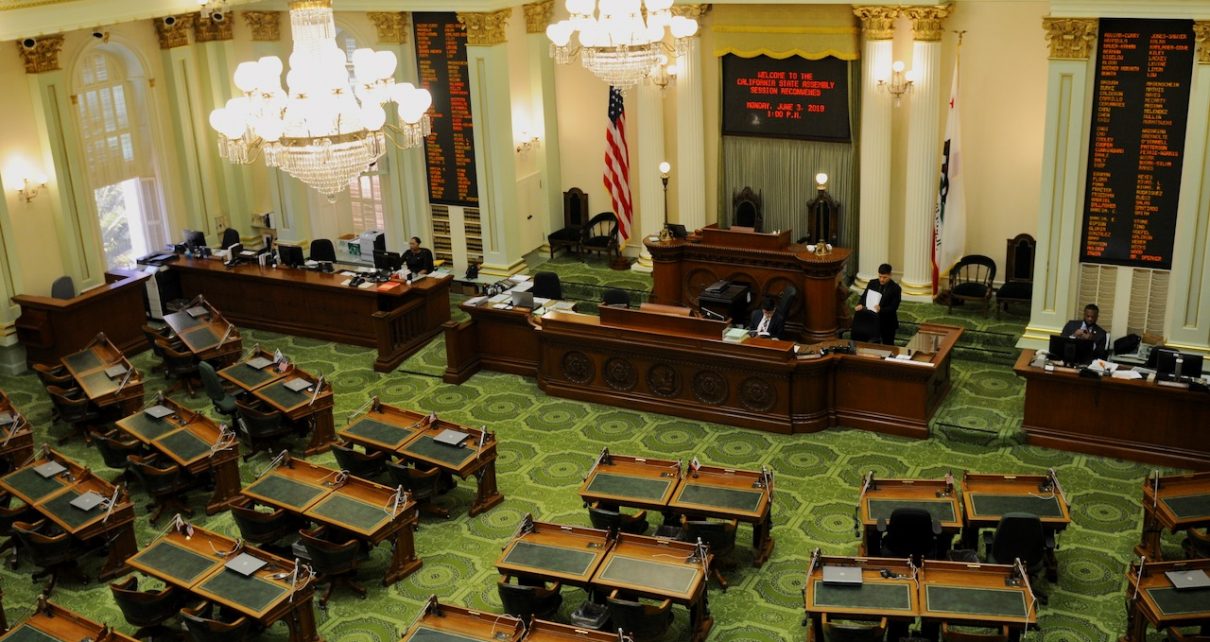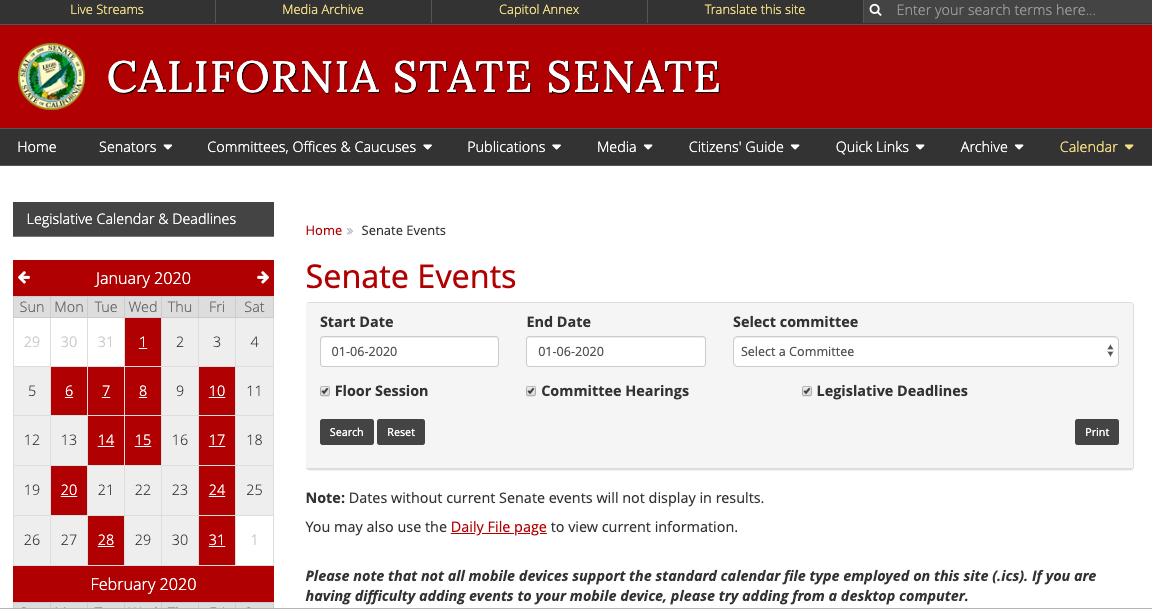
California State Assembly. (Photo: Kevin Sanders for California Globe)
What Happens During the Last Weeks of the Legislative Session?
The last two weeks of the Session are a whirlwind
By Chris Micheli, July 28, 2020 6:22 am
This article highlights the major happenings at the end of the legislative process pursuant to the California Constitution and relevant statutes. There are essentially three major parts to the legislative session: house of origin; second house; and, final month and gubernatorial action. Obviously, there are key subparts in these three major parts, but the session can be viewed in this way. This piece is on the final weeks of Session, followed by gubernatorial actions.
Overview
The final weeks of the Legislative Session are a proverbial sprint to the finish line. Policy committees have finished the bulk of their work, but many bills get significant amendments that require the policy committees to hear additional bills as the Session winds down. The main focus is now on the fiscal committees and their votes on measures that are pending on the Suspense Files in the respective Appropriations Committees of the Senate and Assembly.
The last two weeks of the Session are a whirlwind as several hundred bills are considered on the Floor of the second house, with most bills having to return for a final vote on the Floor of the bill’s house of origin. Once Session adjourns, the work is not done. Instead, the focus turns to the Governor’s Office and his consideration of the hundreds of bills that reach his desk.
Legislative Calendar
The following calendar lists the major deadlines for the remainder of the 2020 Session:
|
DATE |
DEADLINE |
|
July 27 |
Legislature reconvenes from Summer Recess (J.R. 51(b)(2)) |
|
August 14 |
Last day for policy committees to meet and report bills (J.R. 61(b)(14)) |
|
August 17 |
Last day to amend bills that affect CA Stem Cell Research & Cures Act, or Political Reform Act of ‘74 |
|
August 21 |
Last day for fiscal committees to meet and report bills (J.R. 61(b)(15)) |
|
August 24 – 31 |
Floor Session only (J.R. 61(b)(16)) |
|
August 24 |
Last day to amend bills on the Floor (J.R. 61(b)(17)) |
|
August 27 |
Last day to submit conference reports to the Desk; last day to remove bills from the Inactive File |
|
August 28 |
Last day to amend all measures prior to adjournment in order to comply with Prop. 54’s 72-hours in print rule |
|
August 31 |
Last day to pass bills, except four specified bills; Final Recess begins upon adjournment (Art. IV, Sec. 10(c)) (J.R. 51(b)(3)) |
|
September 30 |
Last day for Governor to sign or veto bills passed by the Legislature before Sept. 1 and in the Governor’s possession on or after Sept. 1 (Art. IV, Sec. 10(b)(2)) |
Constitutional and Statutory Requirements
A bill cannot be passed or become a statute unless that bill and any amendments have been in print and published on the Internet for at least 72 hours before the vote, unless the Governor has submitted a statement that the bill is needed to address a state of emergency. No bill may be passed unless a majority of members of each house votes in favor of the bill (Article IV, Section 8).
Each bill passed by the Legislature must be presented to the Governor. The bill becomes a statute if it is signed by the Governor or the Governor may veto a bill if he or she returns it to the house of origin along with any objections. If the Legislature votes again to pass the bill by a 2/3 majority vote, then the bill becomes a statute (Article IV, Section 10).
Any bill in the possession of the Governor after adjournment of the Legislature that is not returned within 30 days becomes a statute. Any other bill presented to the Governor (i.e., prior to the end of session) becomes a statute if it is not returned within 12 days (Article IV, Section 10).
At the close of each regular session, the President pro tempore of the Senate, the Speaker of the Assembly and the two minority leaders must report on the progress made toward meeting the goals and objectives outlined at the beginning of the legislative session (Article IV, Section 22).
At each Session, the Governor must report to the Legislature any reprieves, pardons or commutations granted, including the reasons for doing so (Government Code Section 12017).
- Hearings on Third-party Claims - February 18, 2026
- Cullen Earthquake Act - February 17, 2026
- Encumbrances in Eminent Domain - February 17, 2026





One thought on “What Happens During the Last Weeks of the Legislative Session?”